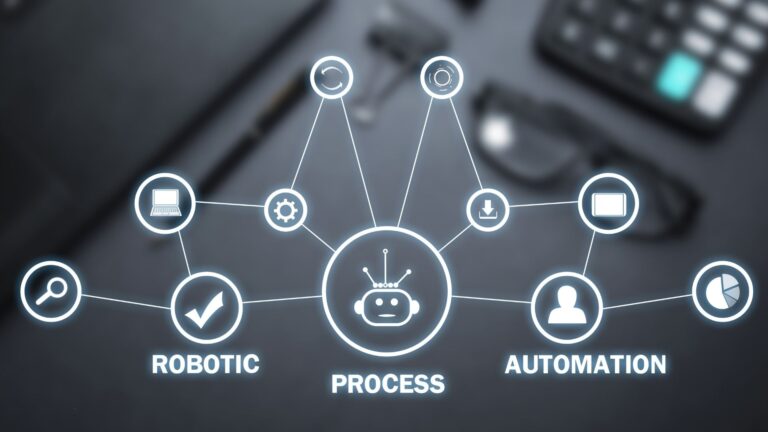Artificial Intelligence (AI) has emerged as a game-changing technology, transforming various industries with its ability to automate tasks, process vast amounts of data, and make intelligent predictions. In the realm of digital marketing, AI has revolutionized the way businesses engage with their customers, analyze consumer behavior, and optimize marketing strategies. In this article, we delve into the profound impact of AI on digital marketing, exploring its key applications, benefits, and potential challenges.
Enhanced Data Analytics
AI-powered algorithms have opened up new avenues for data analysis in digital marketing. By leveraging machine learning techniques, marketers can collect and process massive amounts of data in real-time, providing valuable insights into consumer behavior and preferences. AI tools can efficiently analyze customer interactions, social media trends, search patterns, and purchase history to create detailed customer profiles and identify relevant target audiences.
These data-driven insights enable marketers to personalize marketing campaigns, deliver targeted advertisements, and optimize content strategies. By understanding consumer preferences and behaviors at a granular level, businesses can tailor their messaging to resonate with their audience, resulting in higher conversion rates and improved customer satisfaction.
Intelligent Chatbots and Virtual Assistants
AI-powered chatbots and virtual assistants have transformed customer service in the digital age. These intelligent systems can interact with customers in real-time, answer queries, provide product recommendations, and even process transactions. By leveraging natural language processing (NLP) algorithms, chatbots can understand and respond to customer inquiries in a human-like manner, enhancing the overall user experience.
Chatbots also offer round-the-clock support, enabling businesses to engage with customers anytime, anywhere. They can handle multiple customer interactions simultaneously, providing swift and accurate responses. This not only reduces the workload on customer support teams but also improves customer satisfaction by providing immediate assistance.
Predictive Analytics and Customer Segmentation
AI algorithms excel at predicting future outcomes based on historical data patterns. In digital marketing, predictive analytics plays a crucial role in forecasting consumer behavior and identifying potential leads. By analyzing vast amounts of customer data, AI systems can identify patterns, correlations, and trends, allowing marketers to make data-driven decisions.
Moreover, AI facilitates precise customer segmentation by categorizing individuals into distinct groups based on their preferences, demographics, and behaviors. Marketers can then create personalized marketing campaigns for each segment, ensuring maximum relevance and engagement. This targeted approach boosts conversion rates, enhances customer loyalty, and maximizes return on investment (ROI).
Content Creation and Optimization
AI has revolutionized content creation and optimization by automating various tasks that were once time-consuming and resource-intensive. Natural language generation (NLG) algorithms enable AI systems to generate high-quality, human-like content at scale. These algorithms can analyze data and transform it into insightful articles, product descriptions, social media posts, and more.
Additionally, AI-powered content optimization tools can analyze the performance of existing content, identify areas for improvement, and provide suggestions to enhance engagement and search engine visibility. By analyzing factors such as readability, keyword optimization, and user engagement metrics, AI helps marketers refine their content strategies, resulting in improved search rankings and increased organic traffic.
Challenges and Ethical Considerations
While the benefits of AI in digital marketing are significant, there are also challenges and ethical considerations that must be addressed. One major concern is data privacy and security. With the extensive collection and analysis of customer data, businesses must ensure the proper handling and protection of sensitive information.
Another challenge is the potential for algorithmic biases. AI systems are only as unbiased as the data they are trained on. If biased data is used, it can result in discriminatory practices, perpetuating existing social biases and prejudices. Marketers must remain vigilant and continuously evaluate the fairness and inclusivity of their AI systems to avoid unintentional discrimination.
Artificial Intelligence has ushered in a new era of possibilities in the realm of digital marketing. From data analytics and customer segmentation to chatbots and content optimization, AI is reshaping the way businesses connect with their target audiences. By harnessing the power of AI, marketers can deliver personalized experiences, make data-driven decisions, and optimize their marketing efforts. However, it is crucial to navigate the challenges and ethical considerations associated with AI to ensure its responsible and beneficial integration into digital marketing practices. As technology continues to advance, AI will undoubtedly play an increasingly influential role in shaping the future of digital marketing.



